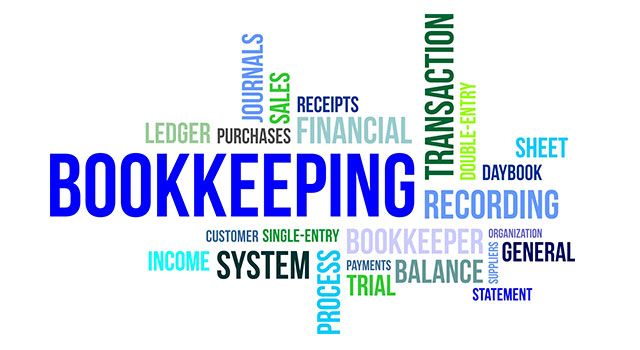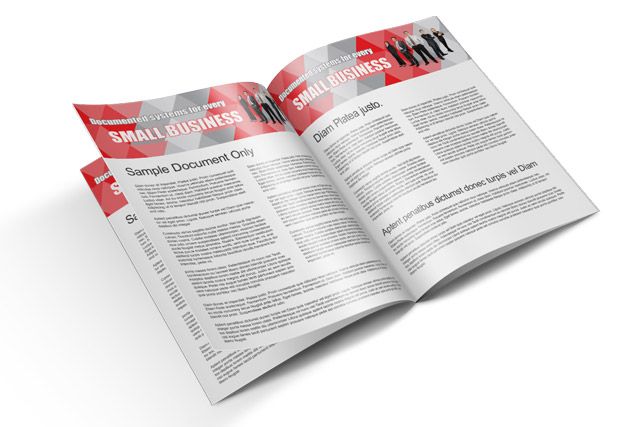
Identifying The Services You Want To Receive From Your Accountant
Issue 0012
Small businesses want more from their accountants
Over the last few years, there has been considerable publicity about various surveys that have asked small/medium enterprise community what services they are receiving from accountants and business advisors. In most of these surveys, the general opinion of the small businesses that were surveyed was that they would like to receive additional services from their accountants.
Our suggestion is that you should be having a discussion with your accountant and identify the services you would like to receive.
Accountants, who are offering business advisory services, will normally use a ‘menu’ of services and it will contain key headings such as:
- Current Business Performance
- Taxation Planning
- Future Activities – what future activities for which you want to plan?
- Are you satisfied with your wealth creation?
- What are the risk management issues confronting you in your business?
- Have you thought about succession and estate planning?
- Are there business improvement strategies you would like to have introduced?
- Have you got concerns about the financing arrangements for your business?
- Are there other business advisory services on which you would like to receive advice?
Review Of Your Current Business Performance
What could be included in the review of your current business performance? The types of questions you could ask can include:
- Are you happy with your performance for the first three months? Six months?
- Have you been able to have an in-depth discussion with your accountant about the:
- financial results;
- gross profit percentages
- labour to turnover percentage;
- debtors' days outstanding; and
- stock turn?
This is the analysis of the financial results.
- Are you able to run your business within departments?
- If so, how did the individual departments perform?
- If your accountant is not preparing financial accounts on a departmental basis, ask them to do so. You don’t have to be a ‘slave’ to the type of annual accounts your accountant prepares to submit to the ATO. In your own system, you can have detailed management accounts.
- How does your business compare to other businesses?
- Have you participated in a benchmark comparison?
- How is your business’ cashflow? Is it under control?
- Do you need some assistance in your human resources systems?
- Do you need assistance in having discussions with customers? Perhaps your accountant can facilitate a customers’ advisory meeting every three months.
- Are you availing yourself of any government grants that are available, which might assist you in your business and therefore save you from having to outlay all the money yourself?
- Are you happy with your involvement with the business? Would you like to reduce your working hours?
- What are your thoughts about succession planning? Remember, succession planning can apply at any time of the business and at any age of the business owner.
Taxation Planning
The second area to look at is taxation planning.
It always surprises me that, in the surveys of small businesses, taxation planning is listed as one of the items on which small/medium enterprises are looking for more information. Does this mean you’re not communicating with your accountant during the year? Perhaps you should be contacting your accountant at the end of the six-month period and requesting a meeting, to consider your results for the first six months and to develop strategies for the payment of income tax that is emerging, based on those accounting results. What is likely to happen in the next six months?
Future Planning
Future planning is a key area and is the area that accountants, who are offering business advisory services, will be able to really get involved with you.
Future planning is really supporting you, as the CEO, in operating your business. In public companies, CEOs spends about 80% of their time on planning what’s going to happen tomorrow, next week, next month and next year. Most small business operators do not have the luxury of that much time to spend in planning the future. However, future planning is very important and your accountant can really make a contribution.
The Types Of Business Activities You Want
Business Plans
Part of future planning includes the preparation of business plans. What is your business going to look like over the next 12-24 months? This will also involve the preparation of budgets and cashflow forecasts. Every business needs a business plan and a set of budgets and cashflow forecasts. The budget and cashflow forecast should be prepared on at least three scenarios:
- What you expect to happen?
- The best case scenario – what would be the result:
- if everything worked?
- if sales increases a bit more?
- if you are able to buy more effectively?
- if, perhaps, your customers come to your business more often?
- The worst case scenario – what would happen:
- if sales reduced?
- if debtors’ days outstanding blew out a further 10 days?
- if some of your key suppliers demanded faster payments?
These are the type of calculations with which your accountant can assist.
Business Valuation
I believe it’s essential that every business has a business valuation prepared on an annual basis, so you can monitor your increase in value. The profit and loss account and balance sheet are not the only key financial reports. A business valuation, prepared by your accountant, can really assist you in your overall planning for how your business is going.
Selling your Business
Perhaps you’re thinking about selling your business? Our recommendation is that businesses should always be kept in a ‘ready-for-sale basis’, because you never know when someone will come and make an offer to buy your business. Could you supply the information they require to undertake their due diligence?
Expansion Advice
In the CCH survey into small businesses, expansion advice is listed as one of the key areas on which small businesses are looking for more advice. If you are thinking of expanding your business, don’t hesitate to talk to your accountant about the strategies, because this will probably require some adjustments to some of the items previously mentioned in this edition. Your business plan, budgets and cashflow at the very least and, perhaps, you require a discussion with your banker, to supply the finance for the expansion of your business.
Risk Management
Risk management is another key area that accountants can assist you in understanding some of the business risks that apply to all businesses. Some of the obvious ones are:
- Do you have adequate life insurance cover for the key persons within your business?
- If you’re in a partnership or trading through a propriety company with other people, are there buy/sell agreements in place? Are they still realistic in today’s financial terms, or were the agreements drawn up many years ago?
- Have you executed a will?
- Are the executors within your will still appropriate now that you’re running a successful business?
Succession and Estate Planning
Succession and estate planning is another area that should be continually on the list of work to be undertaken by an accountant, assisting their small/medium enterprise clients.
- Have you given any thought to what might happen to your business in the future?
- Are you wanting to develop your business to be able to sell it? If so, you would need a strategy to, first of all, value your business, then look at the systems and look at activities that might be able to improve the overall value of the business. Your accountant can assist you in undertaking these types of evaluations.
- It’s very interesting to have a look at what you think the business is worth and compare it against your accountant’s valuation of your business. If there’s a difference, which is called the ‘valuation gap’, your accountant should be able to give you a strategy, over the next two to three years, on ways and means you might be able to change the business operations to breach that ‘valuation gap’.
Business Health Check
Business health check is another key area. The business’ health is just as important as your health. In a business, the key way to ascertain the state of the business’ health is by:
- Key Performance Indicators (KPIs)
- Financial Ratios
- Calculate some what-if analysis – what would be the result if:
- sales could increase by 5%?
- GP increases by 1%?
- stock turn decreased?
- Benchmarking your business against other similar businesses is a very important indicator to tell you where you might have some problems or issues that need attending to within your business.
Cashflow Management
Cashflow management is, undoubtedly, the most important issue confronting all small businesses. Your accountant can assist you in:
- reviewing your debtors' system;
- reviewing the calculation of debtors’ days outstanding; and
- looking at your debt follow-up procedures – are you promptly attending to follow-up debtors who have missed a payment? Not waiting for three or four weeks and then following them up. If their payment is due on the 30th day, phone calls should be made on the 31st or the 32nd day, inquiring when they expect to be able to make the payment then following up with them.
These are the types of services an accountant, offering business advisory services, in conjunction with chief financial officer services, whereby your accountant’s firm becomes the ‘virtual accountant’ for your business, is able to supply services to you on an ongoing basis: whether it’s one hour a week, four hours a week or a day a week. These are the types of services your accountant can provide.
Accountants Can Assist
If you’re interested in a wider range of services being offered to you, don’t hesitate to have a discussion with your accountant. If your accountant is unable to supply these services, because they are concentrating on income tax matters, and you would like an introduction to an accountant in your location, who can supply these services, please send an email to peter@essbiztools.com.au with your location and postcode and we will send you the names of accountants within your area, who are offering these types of services.
ESS BIZTOOLS has developed hundreds of articles and other templates, to assist small business operators to improve their business operations. A list of some of the services accountants, who are offering business advisory services, might provide can be downloaded with this transcript.
Past Posts
-
 Innovation is Important for SMEs
Innovation is Important for SMEs -
 6 Steps to Boost Your Productivity and Profits
6 Steps to Boost Your Productivity and Profits -
 Tax Incentives For Early Stage Investors
Tax Incentives For Early Stage Investors -
 ESIC Targets SMEs, Inventors, Young Companies
ESIC Targets SMEs, Inventors, Young Companies -
 Early Stage Innovation Company Investor Opportunities
Early Stage Innovation Company Investor Opportunities -
 Will You Have an ESIC Story?
Will You Have an ESIC Story? -
 Are you Receiving a CFO Service from your Accountants?
Are you Receiving a CFO Service from your Accountants? -
 Succession Planning
Succession Planning -
 Business Plans
Business Plans -
 The Year for Business Advisory Services!
The Year for Business Advisory Services! -
 Are you Aware of the PPSR?
Are you Aware of the PPSR? -
 SME Operators – Accountants can Help you with Debtors’ Ma...
SME Operators – Accountants can Help you with Debtors’ Ma... -
 Happy New Financial Year
Happy New Financial Year -
 The Finalisation of the ESIC Legislation will be a Great ...
The Finalisation of the ESIC Legislation will be a Great ... -
 A Business Evaluation Review Can Assist You
A Business Evaluation Review Can Assist You -
 June is a Great Time to Prepare a Business Plan
June is a Great Time to Prepare a Business Plan -
 Businesses Need a Broad Succession Strategy
Businesses Need a Broad Succession Strategy -
 Innovation Companies are a Great Opportunity for SMEs
Innovation Companies are a Great Opportunity for SMEs -
 The PPSR – are you aware of it and how it can affect your...
The PPSR – are you aware of it and how it can affect your... -
 Debtors Management - Vital for Business Success
Debtors Management - Vital for Business Success -
 How can your Accountant assist you?
How can your Accountant assist you? -
 The Personal Property Securities Register – how do you pr...
The Personal Property Securities Register – how do you pr... -
 Legal Advice is Essential for Business Success
Legal Advice is Essential for Business Success -
 Is your accountant your trusted adviser
Is your accountant your trusted adviser -
 Is your accountant famous for adding value?
Is your accountant famous for adding value? -
 Portfolio Allocations Are Important For Effective Management
Portfolio Allocations Are Important For Effective Management -
 The Challenges To Navigate In 2015
The Challenges To Navigate In 2015 -
 Business Plans Are Important For All Businesses
Business Plans Are Important For All Businesses -
 Entrepreneurs’ Infrastructure Program
Entrepreneurs’ Infrastructure Program -
 Digital Disruption Is A Major Concern
Digital Disruption Is A Major Concern -
 Court Case Decisions on the Personal Property Securities ...
Court Case Decisions on the Personal Property Securities ... -
 Personal Property Securities Act Presents Businesses A "T...
Personal Property Securities Act Presents Businesses A "T... -
 Do You Require Additional Financial Services?
Do You Require Additional Financial Services? -
 Personal Property Securities Act – How Does It Affect Sma...
Personal Property Securities Act – How Does It Affect Sma... -
 Business Health Checks For Your Business
Business Health Checks For Your Business -
 Why Do Some Accountants Offer Chief Financial Officer Ser...
Why Do Some Accountants Offer Chief Financial Officer Ser... -
 Getting Assistance From Your Accountant To Better Manage ...
Getting Assistance From Your Accountant To Better Manage ... -
 Identifying The Services You Want To Receive From Your Ac...
Identifying The Services You Want To Receive From Your Ac... -
 What Is Business Advisory Services?
What Is Business Advisory Services? -
 Accountants Can Offer More Services Than Just Tax Returns
Accountants Can Offer More Services Than Just Tax Returns -
 Being Kept In The Loop By Your Accountant
Being Kept In The Loop By Your Accountant -
 Personal Property Securities Register – Have You Develope...
Personal Property Securities Register – Have You Develope... -
 Reducing Debtors' Days Outstanding
Reducing Debtors' Days Outstanding -
 Management of Costs - An Overview
Management of Costs - An Overview -
 Succession Planning - Why Is It Necessary?
Succession Planning - Why Is It Necessary? -
 Safe Guarding your Business under the Personal Property S...
Safe Guarding your Business under the Personal Property S...




































